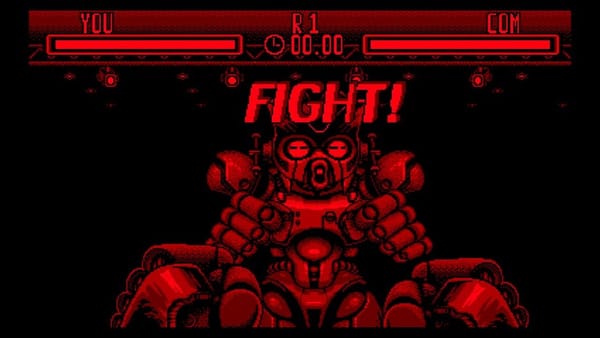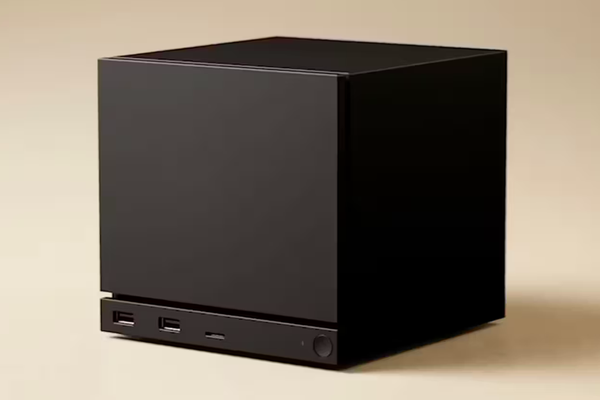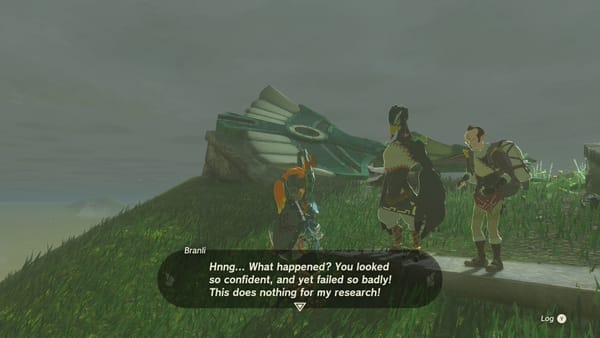#122: No time to explain
Can the fundamental trouble with esports ever be properly solved?
I’ve been watching quite a bit of basketball lately. It’s not a sport I’ve paid much attention to since my schooldays, when I used to play a bit. But I drifted back to it in 2020, when it was one of the first sports to find a way back from Covid, and the NBA drummed up global interest by showing games online for free. I’ve kept tabs on it since, and now the playoffs have started — and the football season is winding down — I’ve found myself getting quite into it again.
I understand the fundamentals of the sport, and over time have got my head around what in videogame terms we would call its current meta. I have no favourite team, but a few I like to watch and see win. I am starting to understand the tactical side of the game, and am beginning to parse the meanings of small parts of its arcane lexicon. I know what a pick and roll is now! I think, anyway. Please don’t ask me to explain it, however.
But, as someone who has only ever watched or played the game casually, the finer details of professional basketball are lost on me. The broadcast coverage, produced for an educated US audience by TNT, ESPN and so on, understandably caters little for overseas luddites who haven’t really watched the game since Michael Jordan hung up his boots, or whichever item of clothing basketball players hang up when they retire. I am often left completely confused by what just happened and why, and the commentators have very little interest in filling in the blanks. In the game I watched last night, an offensive foul was called on a player who accidentally elbowed a defender in the face during their shot motion. Moments later, the other team’s star shouldered a defender in the face during his shot, but no foul was called. The commentators agreed both decisions were correct, but declined to elaborate on why. Ho hum. (American readers: it is for moments like these that the Hit Points MAILBAG was invented.)
This is by no means exclusive to basketball. A friend who has been going to see Arsenal since he was a boy, and who has played IRL football once a week for the past 15 years, recently learned an intricacy of the offside rule that had somehow eluded him all this time. I know how to play chess, and enjoy doing so, but when I see a match report littered with that baffling move notation that chess people use, I feel like I am having a stroke. There is an element of this in just about every form of sport, sure. But the real world’s most popular sports are pretty easy to understand, and to watch. The people with the big muscles are trying to kick the ball in the net, or throw the ball through the hoop, and down the decades TV companies have worked out how to make it watchable. Sure, beginners might miss a bit of nuance, but they still understand what’s going on, who is winning and stuff like that. Which brings me, after just north of 500 words — not bad for a Monday, I think — towards the point of today’s edition: electronic sports, or as I believe we should be calling them, ‘esports’.
At the weekend I read this terrific piece on the problems of Overwatch as a sport. This is just excellent videogame coverage: a highly informed subject-matter expert telling me something I didn’t know about a particular game. Some of the problems here are specific to Overwatch — in short, how some of the game’s core design decisions, and Blizzard’s attempts to rebalance the game around high-level competitive play, have made for a less interesting, and much less watchable sport — but there’s plenty here that applies across the whole of broadcast esports.
I have never really clicked with the idea of team-based videogames as spectator sports. The very concept is a disaster for readability, the producers cutting at high speed between player perspectives and the commentators talking so fast to try and keep on top of it all I feel like I am in the unsettlingly psychedelic back room of a London club in the late ‘90s, and have been cornered by someone on high-grade amphetamines. When Halo Infinite’s multiplayer component launched last year, I got quite into it, but as someone who’d never really played Halo online I was feeling a bit lost. I figured I’d watch some high-level competitive play for guidance. Watching all those Street Fighter tourneys doubtless made me better at the game; likewise all the Souls-series speedruns I had inhaled over the years. Surely it would be the same for Halo? Reader, it was not. The action moved so quickly, and the commentators had so little time to explain the intricacies of what the players were doing, that I’m not sure I learned a thing from the experience, except that perhaps Halo wasn’t for me.
While the sheer, dizzying speed of camera cuts is I suppose inevitable, there is surely a way for the commentary desk to be a bit more accommodating to newcomers (particularly in the case of something like Halo, when a new game launch is likely to spark a surge in interest in the competitive scene). Hit Points OGs have heard this story before, but a few years back the headline Dota 2 tournament, The International, offered a separate stream for novices, promising that the commentators would tailor their coverage accordingly. Out of curiosity, I tuned in. After half an hour I quit the stream, assuming I’d clicked on the wrong one. I was completely, utterly lost.
Even my beloved Street Fighter, for all its inherent readability as a spectator sport, is terrible at bridging the gap in knowledge between invested aficionados and curious newcomers. After some time away from the game and its scene, I watched a streamed SFV tournament last week, and the commentators were making references to mechanics that had been introduced in my absence. Apparently one player’s choice of V-Skill II was significant. They did not elaborate on why. Capcom’s sole real concession to a beginner audience is the little terminology breakdowns it shows on screen, loading-screen tooltip-style, during breaks in play. But they are low-level, and not especially helpful, and divorced of any meaningful context. Once the action starts, you’re on your own.
Esports is of course big business these days, but despite all the money flying around it is still yet to break free of the boundaries of a game’s established fanbase. For years now I’ve been reading that this is esports’ year: the moment it finally breaks through to the mainstream, the point where videogame athletes become as recognisable and revered as their counterparts in the NBA or Premier League. I’m still waiting. And until the esports industry works out how to make their product watchable, readable and, most of all, understandable for a mainstream audience, I’m afraid that wait will continue. In the meantime I shall stick to basketball, in the hope of one day ascertaining what constitutes an ‘illegal screen’.
MAILBAG!
- Merman weighs in on the implications of Bethesda delaying Starfield and Redfall, as covered in Friday’s Hit Points. “That infamous Miyamoto quote served best when games were completely physical and could not be patched at all; they had to leave the cartridge factory working. In a modern era of constant updates and games-as-a-service, it is old news. But I would still bet on these Bethesda titles shipping with problems.” Well, yes. Short odds on that one, I suspect.
- “Did the corporate overlords pressure Bethesda into committing to an unrealistic release date for Starfield?” asks Jon. “Todd [Howard] has been vocal in the past about how he likes to reveal and release a game in quick succession. The release date reveal last year was very out of sync with their usual modus operandi.” Easy on the Latin, Jon. It’s Monday and some of us had a very tiring weekend with the kids.
- “It’s possible to argue that in the context of Game Pass it’s in Microsoft’s best interests to delay big-hitters whether they’re ready to go or not,” writes Edd. “Many of their customers are likely to already be Game Pass subscribers, where the day-one releases are an huge cherry on top that turns an already good value collection of games into an exceptional value proposition. These subscribers are unlikely to unsub for the delayed months before they play Starfield and Redfall, and so will actually pay more in total to eventually get those games by remaining subbed until they release. Meanwhile there's more than enough on the service to keep them busy.” A fair point, but I don’t think this would be sustainable long term. They’d get away with it for a while, of course, but I know enough people who cancelled their Netflix sub ages ago and just re-sub for a month when there’s something on there they want to watch. Microsoft probably isn’t worried about that just yet — not least because many of us have a few years’ worth of subs stacked up — but that may change over time, particularly if delays become a theme.
Lovely stuff. Thanks to everyone who weighed in, and do keep ‘em coming.
MORE!
- Speaking of the ol’ electronic sports, Capcom has revised the restrictive tournament licensing agreement that sparked uproar on the competitive SFV scene. “We acknowledge that we could have handled the situation better,” the company sobbed. “Honouring the grassroots tradition of the Street Fighter community is incredibly important to us.”
- At last, Sony has detailed the games on offer through nu-PS Plus, which begins its staggered global rollout shortly. First, the multi-tier branding is every bit as hard to parse as I thought it would be, and the addition of something called Ubisoft Classics+ hardly helps. The selection of PS4/5 games on offer is better than I expected, but the retro library is somehow even worse than I had feared. Four Jak games, for pity’s sake, and nary a Ridge Racer in sight. Sony says the various libraries will be updated regularly — once a month for the base-tier catalogue, with an extra mid-month update for the two upper levels — but heavens, talk about an uphill climb.
- Stardew Valley has passed 20 million lifetime sales. Five million of those came in the last eight months. Incredible stuff.
- I greatly enjoyed this rundown of Capcom’s short-lived time in the pinball business, which I had no idea about. Some cracking lines in this. Hobbydrama really is the best subreddit.
- Despite the knockdown sale of its western studio operation Square Enix says it’s looking at establishing or acquiring additional studios. Man, Matsuda must already miss being able to say new releases have failed to meet internal expectations.
There you go! I will now go and watch more basketball. As ever, if you’ve enjoyed this, do please give it a share; it’s been a great week for new signups and I’d like to see that continue.
A number of new arrivals came courtesy of Substack’s new Recommendations system, and primarily the kind endorsement of Simon Carless’ excellent GameDiscoverCo newsletter. I’ve added a few recommendations of my own, which you can see on the main Hit Points page. And a special shoutout to non-Substack newsletter The Week In Games, recently launched by Hit Points pal Jeff Northcott, who asked for a mention while he gets his thing up and running. Hurrah! Have a great few days, and I’ll see you all on Wednesday.





